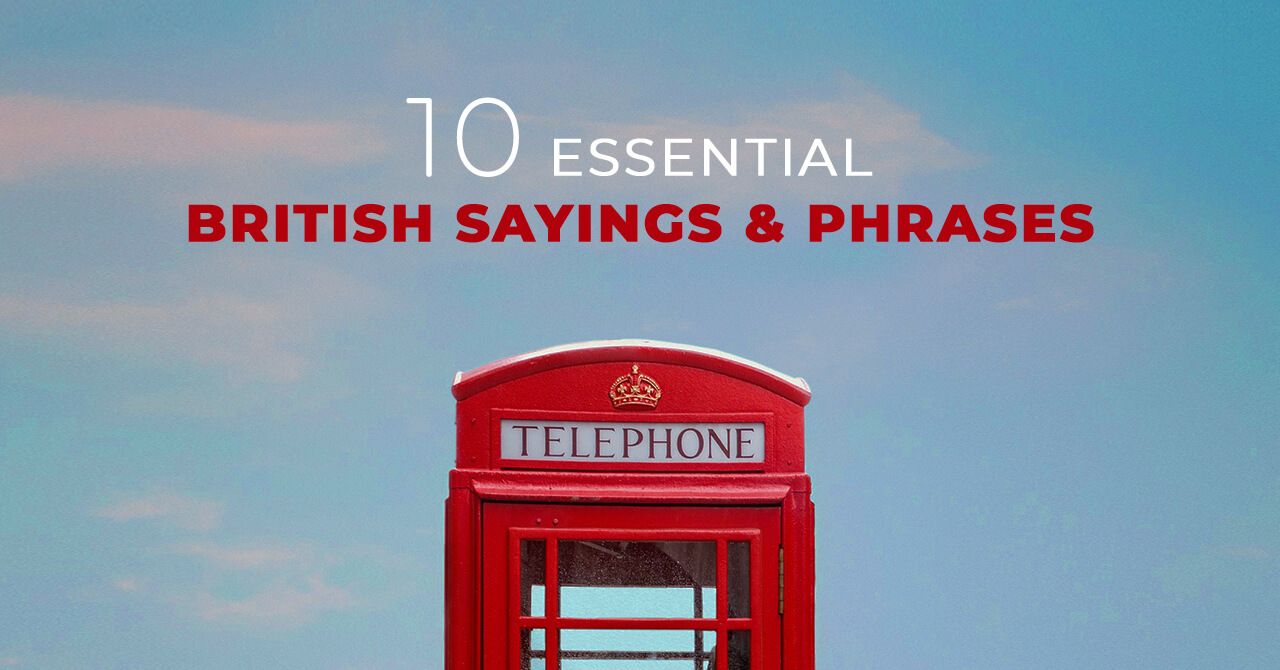
Improve Your English With These 10 Brilliant British Sayings and Phrases
Every language surely has some phrases that often don’t translate well, and the British tongue has some absolute corkers.
There are certain things British people say that leave you wondering and feeling a little out of place. But if you haven’t yet experienced such moments, then wait till you hang out with Brits; then you’ll know why it’s crucial to learn some stereotypical British phrases and sayings.
I know you don’t want to be that Johny who’s always left grinning awkwardly when your British mates are laughing at a joke you don’t understand. Every language surely has some phrases that often don’t translate well, and the British tongue has some absolute corkers.
Prepare for your next conversation with native British English speakers by mastering some of these 10 common British phrases that help define this weird and marvelous English dialect.
10 Common British Phrases to Improve Your English
Mate—meaning “friend.”
Here’s how you can use the term “mate” in a conversation with your British friends:
You: “Hey mate, think those cute lassies up there would fancy a drink?”
Your friend: “Not sure, mate. But I don’t think there’s any British lassie around here who would mind a drink.”
Lovely—meaning “attractive or beautiful.”
We often hear this word among the older British generation, especially from women who are above 40 years.
They like to use it to express their feelings or approval of something or even someone.
Example:
Rob’s cat looks ‘lovely’ in this portrait, and it reminds me of my ‘Luna,’ who was about his age when we first took her Photograph.
Cheers—meaning “thank you, or goodbye.”
The word “cheers” is quite common among the Brits and the Americans. They usually say it whenever they are clinking their glasses for a toast.
In British English, you can also use cheers as an informal of “thanks” or “goodbye.”
Leg it—meaning “to flee, or to run.”
“Leg it” is a British saying that means to flee or to run (as in escaping from something or someone).
Example:
We couldn’t wait to confirm who the stranger was. We just legged it out of the room like we had seen a ghost.
Alright?—meaning “greeting; how are you?”
Although this common British phrase means “OK” or “fine” in North America, it’s a common greeting used by Brits as the equivalent of “how are you?”
And it’s often accompanied by the term “mate,” like in this example:
Luca: “Alright, Mate?”
Alberto: “Alright.”
Cost a bomb—meaning “very expensive”
Sometimes you might hear people saying, “it costs an arm and a leg,” meaning that something is super expensive.
But you can also use the British expression, “it cost a bomb,” which also means the same thing.
Example:
I’ve always fancied one of these watches, but I heard they cost a bomb.
Snogging—meaning “kissing passionately”
Example:
Last night at Brad’s party, his parents were snogging in the backyard. I didn’t know where else to look.
If you pay close attention to that example, you’ll notice another common British phrase, do. I used it to replace the formal word “party.” You can also use it to refer to parties like birthdays or wedding anniversary parties.
Cheeky—meaning “lacking respect but showing it in a funny way”
Cheeky is a stereotypical British phrase used to describe an act that could be considered shameless or impolite. But for some reason, it also appears funny to others.
Example:
Keep an eye on my brother’s kids. They can be quite cheeky sometimes. They tied Tommy’s shoelaces together last summer!
I’m pissed—meaning “I’m drunk”
You don’t wanna use this British phrase in any random conversation. It’s usually considered an offensive word.
Americans often say it when they are annoyed (or pissed off) with something. But the Brits use it to say they are drunk (and not annoyed).
I’m knackered—meaning “I’m tired, or I’m exhausted”
The word “knackered” is a popular British expression that means tired, exhausted, or worn out. It’s very casual and is primarily used in Britain.
Example:
These guys look fit for the next cup round, but the other teammates seem a little knackered.
Final Thoughts
We all know that British and American English vary. And not just in spelling. Some of their phrases, terms, slang, and even pronunciation differ. And it’s quite possible to walk into a restaurant or bar and don’t understand most of the things British people say when they talk.
You definitely don’t want to be that Johny who smiles awkwardly alongside his British mates without knowing what the laugh is about. So, be sure to learn and understand these common British phrases to improve your English skills.
I'm Ronny Okumu with over 7 years of professional writing. Learning new things is something I truly enjoy. And if I meet a new topic, I just spend some time researching until I can write about it.

